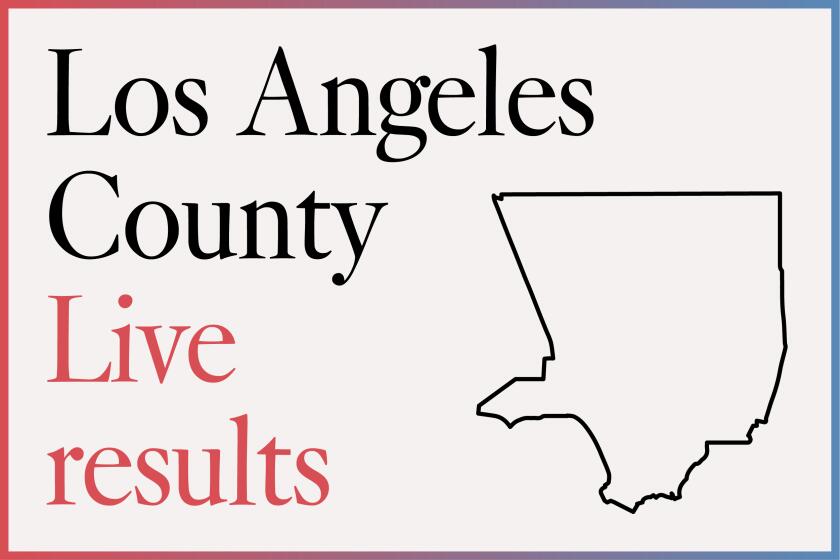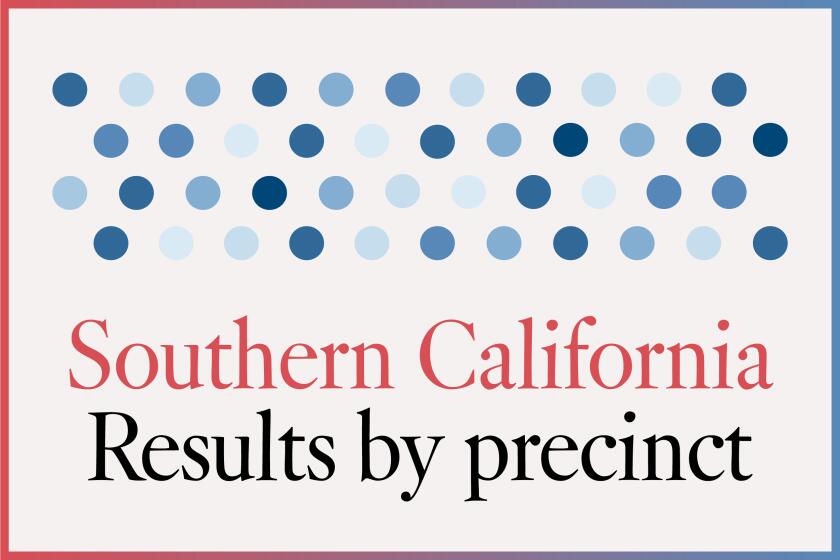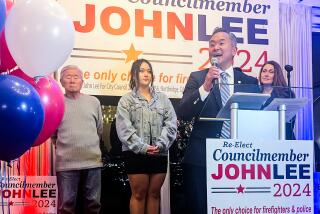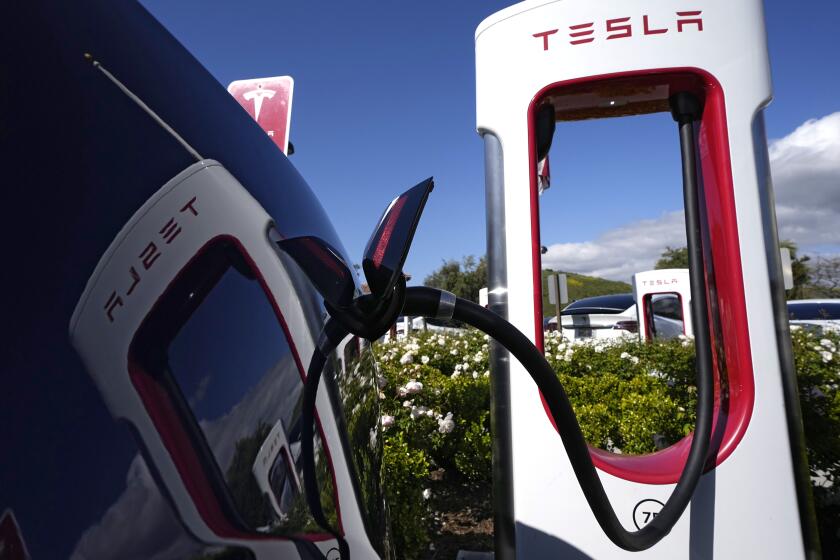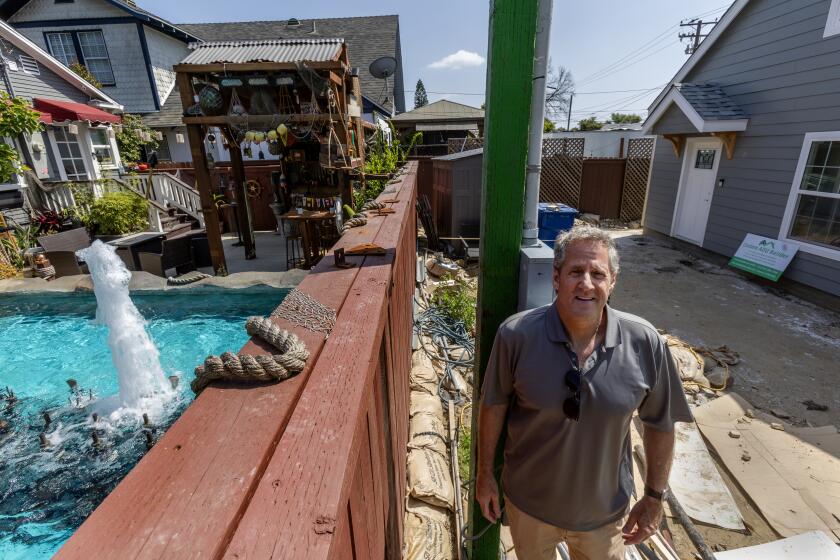L.A. jolted by progressive political shakeup this week. Is it just the beginning?
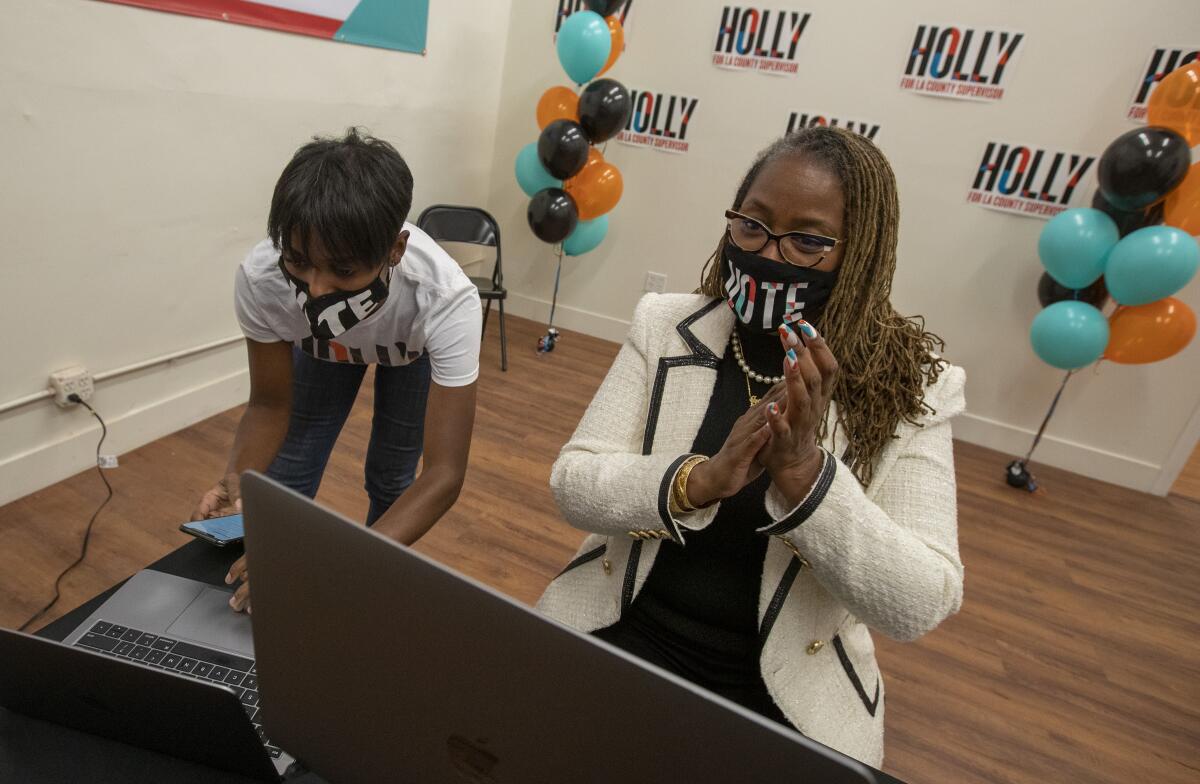
In a year dominated by massive street protests over racial injustice and wrenching losses from the pandemic, Los Angeles voters upended the political status quo on Tuesday by backing a slate of progressive candidates and measures.
The question now is whether the leftward push is the beginning of a larger realignment of local politics or a unique moment brought about by extraordinary times.
Voters have the chance to dramatically reshape L.A. City Hall in 2022 when they cast ballots for mayor, eight City Council candidates, city attorney and city controller.
While L.A. has long been dominated by Democrats, the more establishment players are now being challenged from the left in a battle also playing out among Democrats at the national level.
Locally, voters on election day appeared to favor more progressive candidates and back stronger action on racial justice and a more humane approach to homelessness.
The large voter participation seen in L.A. County has been credited to the presidential race and a new election schedule that synchronizes local races with gubernatorial and presidential elections. At the same time, issues including police reform were at the forefront of voters’ minds.
It remains to be seen if progressives and reformers — groups probably helped by a larger turnout of younger, poorer and non-white voters on Tuesday — will also leave their stamp on the 2022 city election. The electorate in local L.A. races has historically skewed toward older homeowners and generally been pretty white.
Skeptics note that L.A.’s finances are already reeling from pandemic-fueled tax losses and that City Hall may not have the money to carry out ambitious plans.
But others believe this week is just the beginning.
“I don’t think that this is a one-off or some kind of fluke,” said Isaac Bryan, who helped run the committee for Measure J, which voters backed Tuesday. The measure will divert more county money to social services and jail diversion programs.
“All of these races demonstrated the values of L.A. County are now going to be reflected in our elected officials. We are tired of the corruption in City Hall,” Bryan said. “We are tired of speaking only in rhetoric and not in policy.”
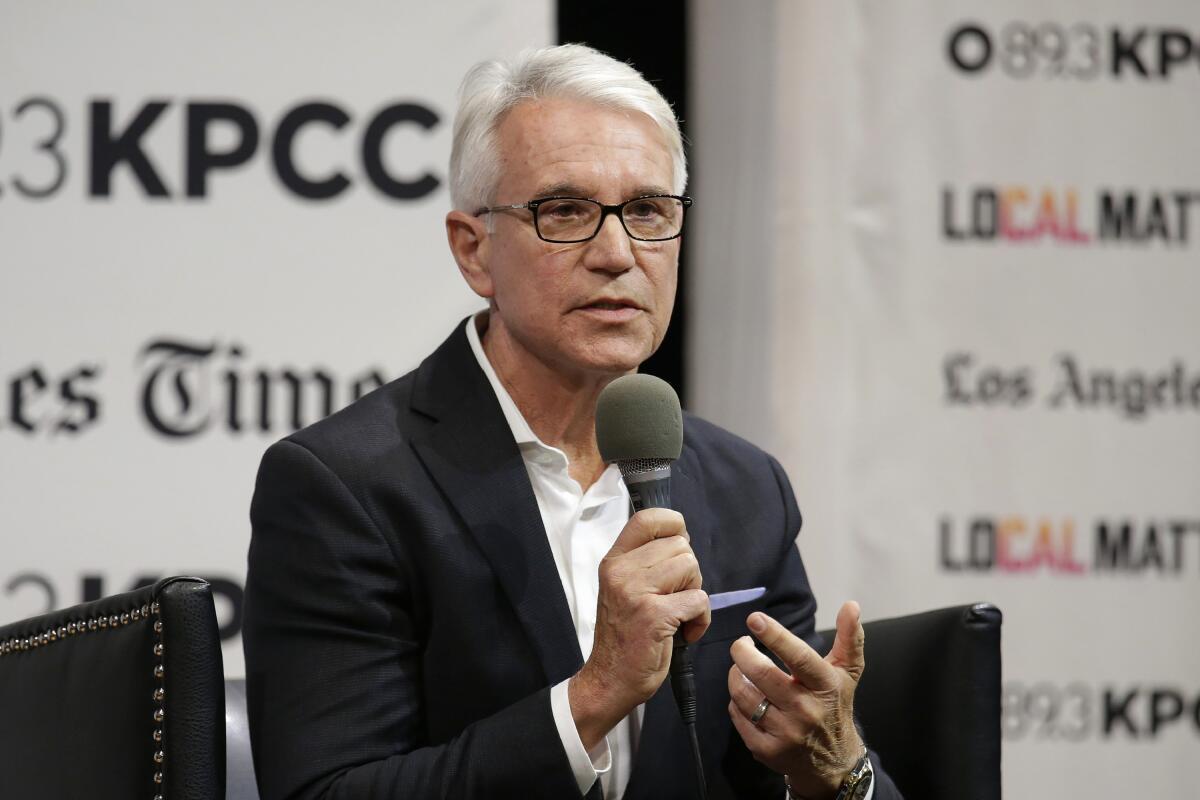
Activists argued that Tuesday’s results were the culmination of years of work, including regular protests held downtown in an effort to oust L.A. County Dist. Atty. Jackie Lacey, who appeared to be losing her race to challenger George Gascón, former San Francisco district attorney.
Political consultant Eric Hacopian expects many progressive candidates — and even those further to the left — will run for City Council in 2022, inspired by the apparent victory of newcomer Nithya Raman in a Hollywood, Silver Lake and Los Feliz City Council district race.
“There’s going to be challengers galore next cycle,” Hacopian said. “There’s no question about it.”
Raman’s campaign relied on both grass-roots support and a big war chest to pull ahead of City Councilman David Ryu — a formula that will be difficult to replicate, said Hacopian, who ran an outside committee supporting Ryu in the primary election.
Raman was one of three candidates who challenged establishment figures in Tuesday’s election, a group that included Gascón and state Sen. Holly Mitchell.
Gascón, seen as a reformer on police issues, was ahead of Lacey, according to results updated Thursday.
The Times’ analysis that showed Gascón generally performed stronger on the Westside and in South Los Angeles than Lacey. Lacey pulled in more votes on the edges of Los Angeles County and the western San Fernando Valley, areas that have typically skewed more conservative, the data show.
Donna Bojarsky, a longtime Democratic political consultant and founder of a nonprofit dedicated to building civic engagement in L.A., said she would be cautious about calling the results a progressive wave.
Alex Lee, a 25-year-old San Jose Democrat, will become the youngest state legislator in more than 80 years and the first to have come out as bisexual.
“You could also say there was an anti-incumbent vote,” Bojarsky said, characterizing anti-incumbency as a “major factor” in several races.
That sentiment is a far cry from what’s typically expected in L.A. politics, where incumbency has historically carried an enormous political advantage.
“We have to know that ‘progressive,’ in the context of a city like Los Angeles, has to mean more than just a title,” Bojarsky said. “We have to look beyond labels and take enough interest that we know who people are.”
She cited the example of L.A. County Sheriff Alex Villanueva, who ran as a progressive reformer in a long-shot bid to unseat then-incumbent Sheriff Jim McDonnell in 2018. Villanueva’s tenure has been deeply controversial and brought rebukes from the groups that once endorsed him.
Raphael J. Sonenshein, a local government expert who runs the Edmund G. “Pat” Brown Institute of Public Affairs at Cal State L.A., said Tuesday’s election shows incumbents will probably have to recalibrate in coming elections.
“Any [City Hall] incumbent is going to have some problems, partly because of the strength of the progressive movement that has its own issues that it really wants to see,” Sonenshein said. “Also, establishment candidates can’t win just with endorsements from major players.”
Still, progressives have fallen short in recent years in some districts.
In the northwest San Fernando Valley — an area with a reputation as a relatively conservative part of L.A., despite having more Democrats than Republicans — City Councilman John Lee has twice defeated a more progressive candidate in the last two years.
Stuart Waldman, president of the Valley Industry and Commerce Assn., challenged the notion that City Hall was suddenly going to enact sweeping changes sought by some activists after Tuesday.
“There are candidates with bold ideas and then there are elected officials who have to be in touch with reality,” Waldman said. “You can’t start giving away free rent, you can’t start giving away free utilities. You have to be reasonable.”
Mark Ryavec, president of the Venice Stakeholders Assn., said it’s his view that if Ryu and Lacey lose, it’s because neither is a particularly strong politician. He doesn’t see those losses as a bellwether for how residents will vote in 2022.
In some sections of Venice, there is long-standing unhappiness with City Hall over the city’s handling of homelessness and more recently, the increase in crime.
Ryavec predicted that the rise in crime will lead to “law and order” candidates on the ballot in two years.
Erick Huerta, an activist and host of the local issues podcast “Órale Boyle Heights,” sees Tuesday’s results far differently.
He described the success of progressive candidates — Raman as well as Sasha Renée Pérez, a young community organizer who’ll be the next mayor of Alhambra — as part of the same momentum that drove New York Democratic Rep. Alexandria Ocasio-Cortez’s insurgent bid for Congress in 2018.
He characterized anger at the Trump presidency as a pivotal driver of political engagement at the local level.
Looking to the future, Huerta speculated that some of the ferocity of that energy might dim in L.A. if the country sees a Biden presidency, with “some folks taking the back seat” as the national situation registers as less of an emergency in liberal L.A.
Times staff writer Ben Welsh contributed to this report.
More to Read
Start your day right
Sign up for Essential California for news, features and recommendations from the L.A. Times and beyond in your inbox six days a week.
You may occasionally receive promotional content from the Los Angeles Times.
